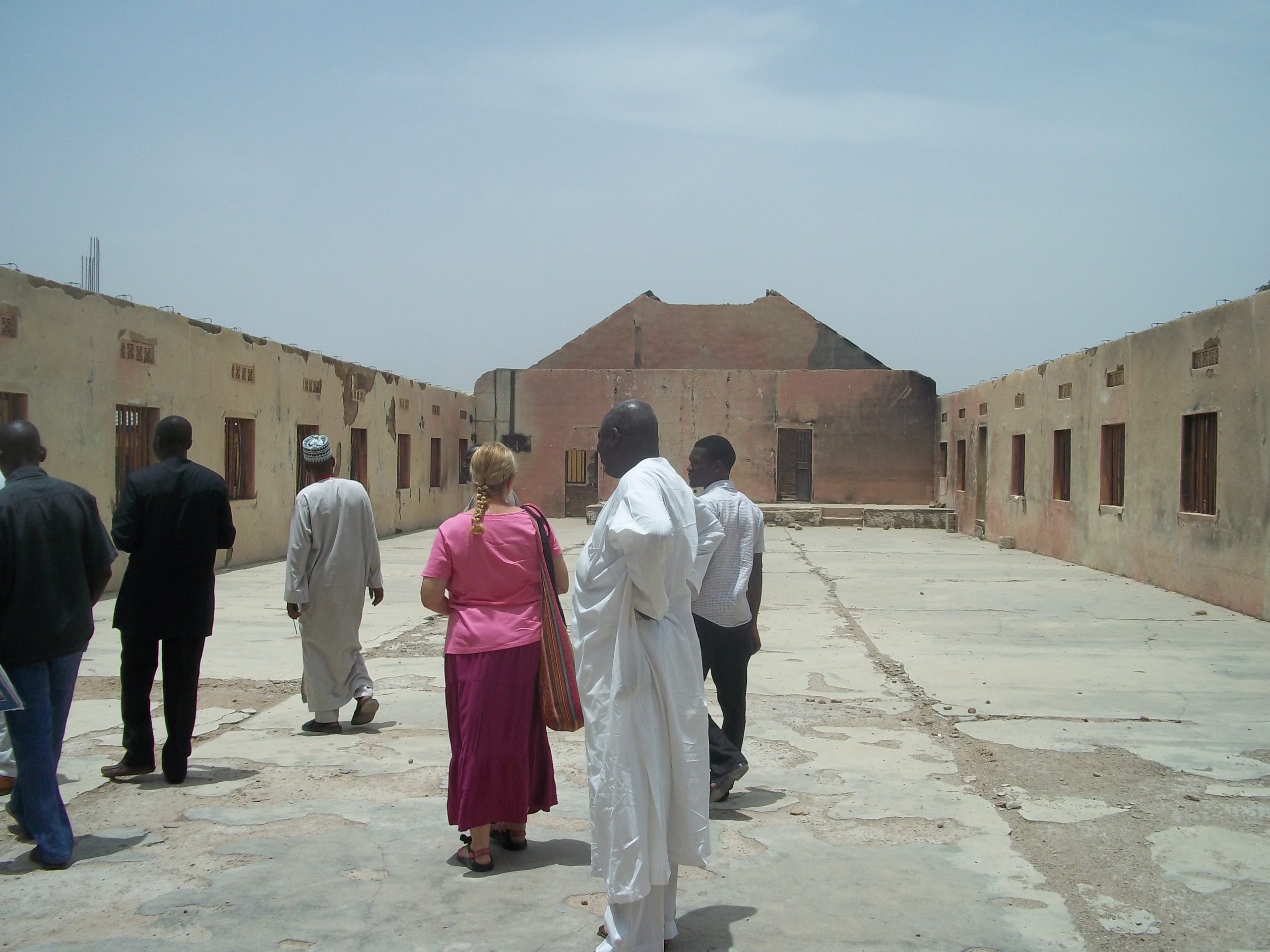CPTnet
15 May 2015
NIGERIA: The struggle to find hope in the midst of despair
by Peggy Gish
[Note: CPTer Peggy Gish has been working on a crisis team for the Church of the Brethren in Nigeria. This piece has been adapted for CPTnet. The original is available on her website.]
 |
| Burned Church of the Brethren in Mubi |
In my five weeks in Nigeria, I had been hearing stories of
people escaping or seeing family members killed by Boko Haram, but these
stories became more real to me as we accompanied a team from the Swiss Embassy
to visit the city of Mubi. There, Boko Haram destroyed and ransacked the Nigerian
Church of the Brethren (EYN) headquarters, schools, and burned several EYN
churches. The Boko Haram soldiers totally destroyed a clinic at EYN headquarters. Among the groups of people we met who had
returned to the city to try to rebuild their lives, I sensed that they have
held on to hope, rising from their faith and their strong sense of community. Congregations continue to worship out under
shady trees next to the church buildings that Boko Haram had burned.
At one of the churches, a woman shared about her family’s
trying to escape the attacks on Oct 29, 2014. She was at home, her children
were in school, and her husband was out on the farm. She heard gunshots
and people screaming to run for their lives. She didn’t know what was
going on or where her family was. Filled with terror she started to
run. She had no time to take anything. Her children escaped
from their school through holes in the wall. She and her younger children
headed for the mountains, as they are traditionally thought of as safe places
and then escaped to Cameroon. Meanwhile her husband and oldest son tried
to escape with others by road. Boko
Haram had set up roadblocks and shot many of the men, including her
husband. Her son hid himself under sheaves of maize until the soldiers
were gone and he was able to escape. Several months later she still
had no word of her husband. When Mubi was reopened she went to search for
him. Boko Haram soldiers had killed him and left him by the side of the
road. She was able to identify him by
his clothes and ID, which the Boko Haram soldiers left with him.
We met with women’s groups from several other EYN churches
and discussed their trials, concerns, and needs. Food and water are the
two most prevalent staples they lacked. They escaped without taking
anything, and Boko Haram took and destroyed all of their possessions, crops,
livestock and food. The rainy season is quickly approaching, and the
people do not have time to replant. Boko Haram vandalized the boreholes so
they have no access to clean water. They have no source of income. Boko
Haram destroyed their homes. They are still living in constant fear and
find it difficult to trust their Muslim neighbors.
The challenges are great and there is much work to do for healing
of the trauma they have experienced and of broken relationships between
Christians and Muslims. Yet, as the displaced people return home, they are
finding strength in their faith, their drive to rebuild their lives, and in
their caring for one another.
Christian Peacemaker Teams had to discontinue its work in Africa after the 2008 financial crisis and continues to turn down invitations to support the work of peacebuilders working in Nigeria, Uganda, DRC, Egypt and other places of lethal conflict https://www.cpt.org/participate/donate



